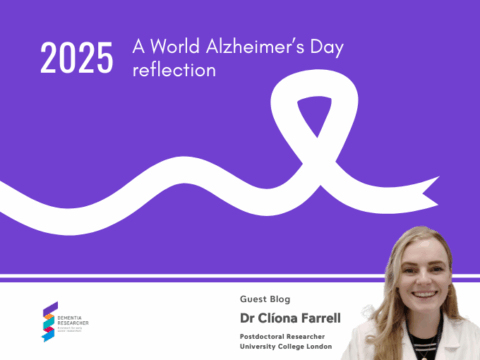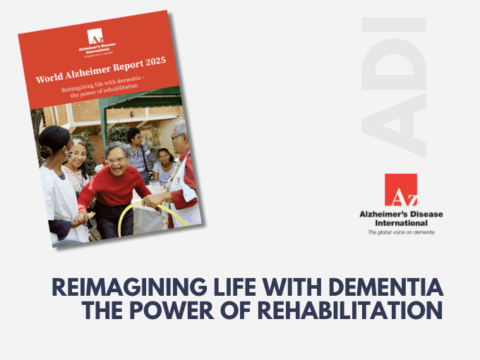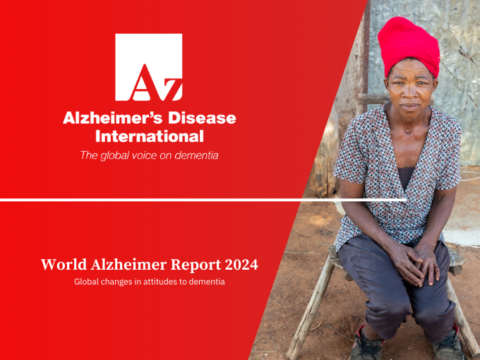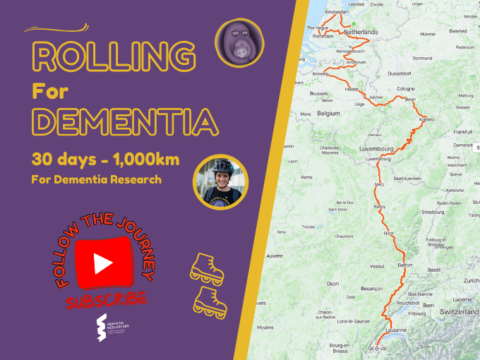
Today is World Alzheimer’s Day. Dementia organisations across the world, will be tweeting, zooming, releasing reports and working hard to raise awareness and campaigning to address the stigma that surrounds dementia.
The World Alzheimer Report 2020: Design, Dignity, Dementia: dementia-related design and the built environment released today, looks at innovations across physical environments. From home and domestic settings to residential care, hospitals and public spaces. Research quietly plays a key role in so many aspects of design and service provision. Providing evidence that one way of doing something is better than another, making new discoveries and reaching a new understanding.
In November 2019 the Conservative Party pledged to double the amount of dementia research funding over the next decade. This was great news at a time when dementia research funding had plateaued.
Since then, the coronavirus pandemic hit the world, hit people living with dementia and their families, hit the economy, and hit research. Dementia charities have suspended funding calls, due to a fall in fundraising and early career researcher funding is one of first areas to suffer. This month almost 300 researchers signed an open letter to the science minister, warning that lost funding opportunities brought on by the pandemic could lead to a lost generation of researchers, putting the future of dementia research at risk.
When the extra investment arrives, it is important that we as a research community are ready to put that money to work; that ideas are formulated, studies are ready, and importantly that young people are inspired to choose dementia as their field for study.
Our NIHR Dementia Researcher service, is just one of many ways that the NIHR is working to support and encourage young people and early career researchers. The number of visitors to the site, and listeners to the podcast has doubled in the last year. Over the coming year, we will be working on one of our core aims, which is to inspire young people and undergraduates to choose dementia, and then to support them to complete their studies, and stay within the field.
One example of this is our work with Morgan Daniel. Morgan starts her MSc Dementia course at University College London this month, and over the coming year, Dementia Researcher is working with her to share her story. With monthly blogs and regular podcasts and twitter take-overs, we hope to inspire others to follow the same path.
Earlier this month Adam Smith hosted the Dementia Research Chatathon Live. With contributions from 56 researchers from across the world, it highlighted the wide range of areas being looked at by researchers, from physical environments, to the arts and economics, care homes and genetics. It was inspiring to see that majority of contributions came from early career researchers.
Equally inspiring, has been the response from early career researchers as a result of the pandemic. Quickly establishing COVID-19 research studies, looking at the effects on the brain and how to support people at home and in care homes. Responding and adapting, sharing their research in online webinars, finding innovative ways to continue their studies and work around the challenges of being unable to physically meet the people participating in their studies. Lab based researchers, using time to learn new skills and write papers – whilst also staying safe, healthy and preparing for a time when a new normal returns.
Building capacity within the research system, and inspiring the next generation is essential.
Author
Professor Martin Rossor is the NIHR National Director for Dementia Research, Researcher and Neurologist at University College London. Martin’s clinical research interests are in the degenerative dementias, particularly familial disease, and more recently in general cognitive impairment in systemic disease and multimorbidity. He established the Queen Square Dementia Research Centre and has served as the editor of the Journal of Neurology, Neurosurgery and Psychiatry, President of the Association of British Neurologists and Director of the NIHR Queen Square Dementia Biomedical Research Unit. Martin has over 1,000 publications in the field of dementia research and over 75,000 citations.

 Print This Post
Print This Post




